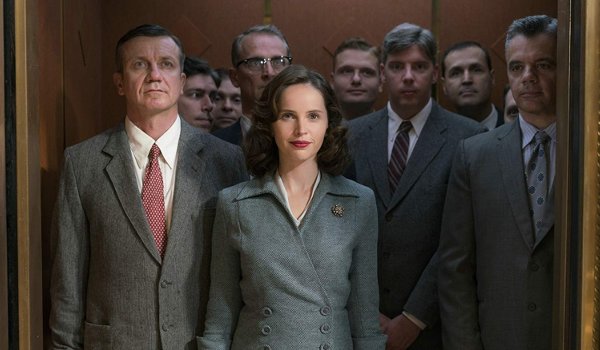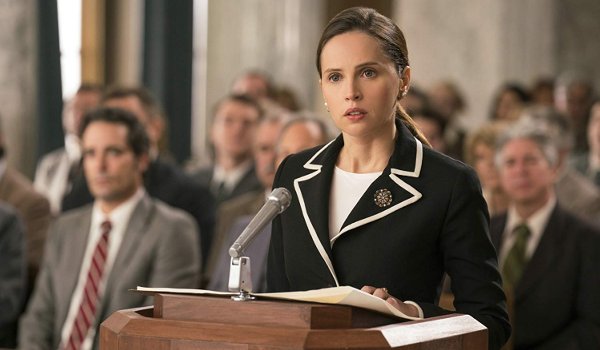- Title: On the Basis of Sex
- IMDb: link

 On the Basis of Sex examines Ruth Bader Ginsburg‘s (Felicity Jones) road from one of only a handful of women granted entry into Harvard to arguing a landmark decision in front of the US Court of Appeals, while fighting sexual discrimination in some form or another every step of the way.
On the Basis of Sex examines Ruth Bader Ginsburg‘s (Felicity Jones) road from one of only a handful of women granted entry into Harvard to arguing a landmark decision in front of the US Court of Appeals, while fighting sexual discrimination in some form or another every step of the way.
Broken into two parts, the film examines the discrimination and struggles Ruth went through both in college and as a graduate unable to find any firm interested in hiring a female litigator. While there’s plenty about the woman’s life left untold, such as the span and scope of her career following these events, the film spends quite a bit of time on Ginsburg’s family life and personal struggles which dovetails into the larger themes of the script allowing for the plot to climax in Ginsbrug’s argument before the US Court of Appeals for the Tenth Circuit in the first case of her career. Jones proves to be the movie’s greatest strength, handling a complex range of emotions over the course of the film leading to Ginsburg’s big moment and, as the film frames it, finding her purpose.
Armie Hammer is equally enjoyable as Ruth’s likable husband and partner. While the film touches on Ginsburg’s legal prowess and intelligence, it is more focused on her struggle to find justice for her gender both in and out of the courtroom then delving too deeply into the legal issues and maneuverings necessary to get there. And there are plenty of male chauvinists for Ruth to fight through led by Sam Waterston whose life gets linked to Ginsburg at Harvard and again when she takes Charles E. Moritz’s (Chris Mulkey) case years later.
With a strong leading lady and an equally impressive subject, the biopic from director Mimi Leder delivers a well-made story worth being told. While it may not be the great film that one could argue the judge deserves, there’s certainly enough present on screen to understand how Ginsburg found her way onto the path that led her to the Tenth Circuit in 1972. Sure, delving more into the woman’s legal prowess and intelligence, along with her career following Moritz, would have helped better frame the film around the lawyer rather than the law. However, Leder does make good on an engaging film that has plenty to say about the laws of our land and the struggle to change even one when it turns out to be unjust.



